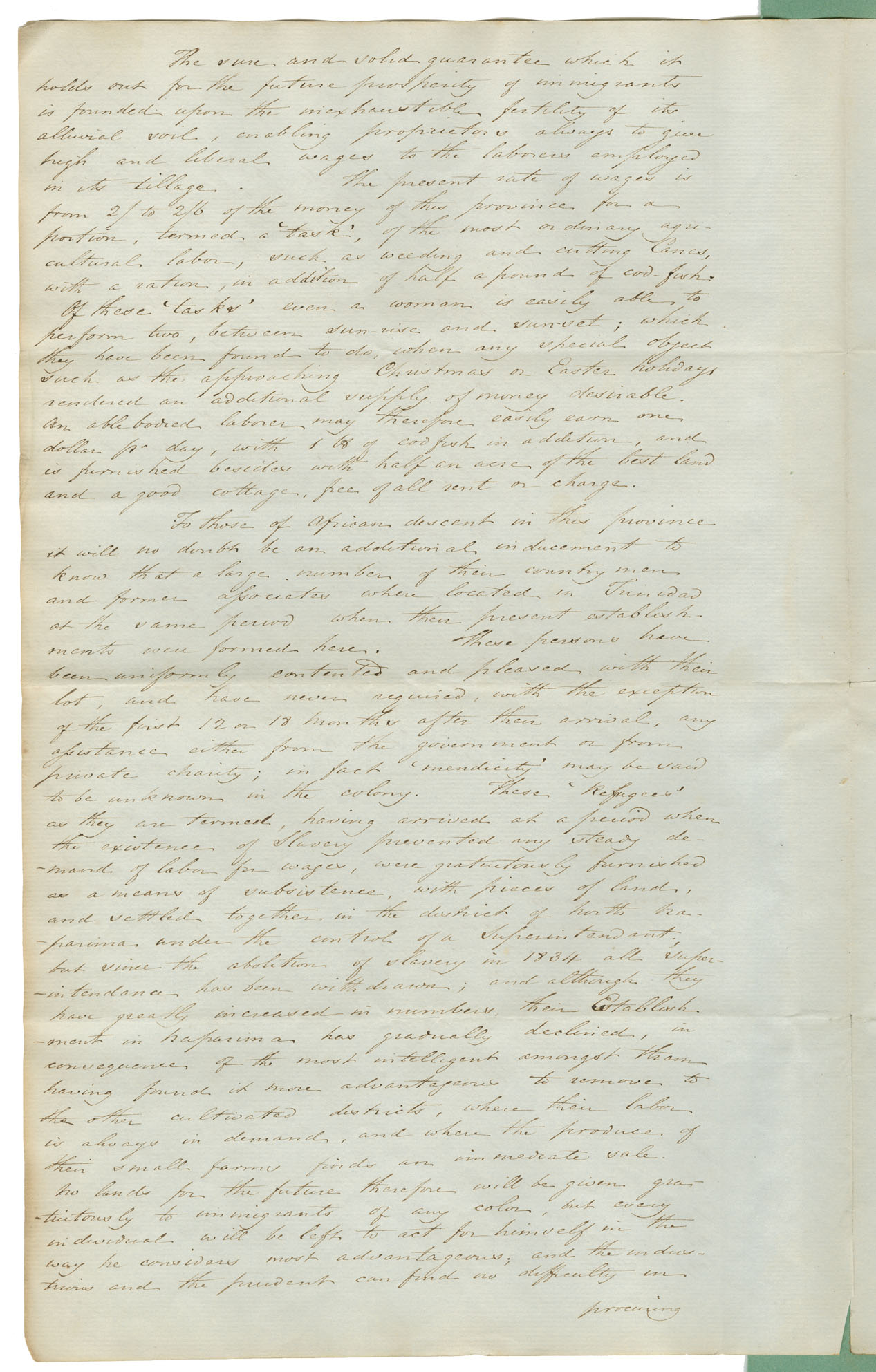Nova Scotia Archives
African Nova Scotian Diaspora
Letter from Mr. Burnley to the Lieutenant Governor, Sir Colin Campbell, on the ordinance of the Island of Trinidad for the encouragement of immigration to that Island
note: transcription publicly contributed - please contact us with comments, errors or omisions
The sure and solid guarantee which it holds out for the future prosperity of immigrants is founded upon the inexhaustible fertility of the alluvial soil, enabling proprietors always to give high and liberal wages to the laborers employed in its tillage. The present rate of wages is from 2/ to 2/6 of the money of this province for a portion, termed a 'task', of the most ordinary agricultural labor, such as weeding and cutting Canes, with a ration, in addition of half a pound of cod-fish. Of these 'tasks' even a woman is easily able to perform two, between sun-rise and sun-set; which they have been found to do, when any special object such as the approaching Christmas or Easter holidays rendered an additional supply of money desirable. An able bodied laborer may therefore easily earn one dollar for a day, with 1 [lb?] of codfish in addition, and is furnished besides with half an acre of the best land and a good cottage, free of all rent or charge. To those of African descent in this province it will no doubt be an additional inducement to know that a large number of their countrymen and former associates where located in Trinidad at the same period when their present establishments were formed here. These persons have been uniformly contented and pleased with their lot, and have never required, with the exception of the first 12 or 18 months after their arrival, any assistance either from the government or from private charity; in fact 'mendicity' may be said to be unknown in the colony. These 'Refugees' as they are termed, having arrived at a period when the existence of Slavery prevented any steady demand of labor for wages, were gratuitously furnished as a means of subsistence, with pieces of land, and settled together in the district of North Naparima under the control of a Superintendant, but since the abolition of slavery in 1834 all superintendance has been withdrawn; and although they have greatly increased in numbers, their Establishment in Naparima has gradually declined, in convergence of the most intelligent amongst them having found it more advantageous to remove to the other cultivated districts, where their labor is always in demand, and where the produce of their small farms finds an immediate sale. No lands for the future therefore will be given gratuitously to immigrants of any color, but every individual will be left to act for himself in the way he considers most advantageous; and the industrious and the prudent can find no difficulty in procuring
Date: 3 August 1839
Reference: Commissioner of Public Records collection Nova Scotia Archives RG 1 volume 422 number 53

